50 items you should never put down the drain and why.
Taking care of your drains by being mindful of what you put in them can save you money by helping your drains last for a lot longer. Our experience with hundreds of blocked domestic and commercial drains has taught us that there are many items, foodstuffs, and objects that should never be put down the drain. So, to help you out, we thought we’d list 50 items you should never put down your drain and why. You won’t believe what we found blocking a drain in Reading!
Please never put down your drain the following:
 1. celery
1. celery
This may seem like a random item to list, but celery is often forced down the kitchen sink and its string-like appearance can lead to a clogged drain that is difficult to fix. Instead of washing celery down the kitchen sink, aim to throw leftover food into the rubbish bin or onto the compost heap – it will save you a lot of expense in drain repair services.
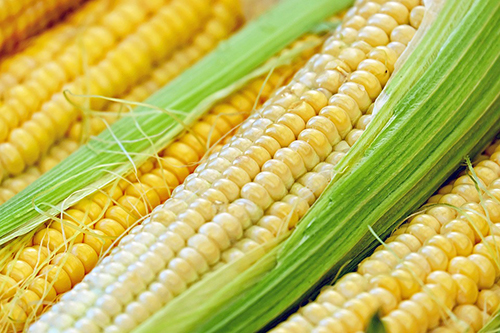 2. corn husks
2. corn husks
Corn on the cob is something many people enjoy at a family BBQ, but this fibrous food is another you shouldn’t wash remnants of down your drain as it can easily cause blockages. Corn combined with celery in your drain is even worse, so always throw your corn husks into the bin instead.
 3. oils, fats, and grease
3. oils, fats, and grease
Oil is so easy to rinse out your frying pan under the tap after making dinner, but all that excess oil can easily get washed away down into your pipes and no adding washing up liquid to it doesn't alleviate the problem. This is never a good thing as it can easily become congealed and this is how blockages are caused and grim 'fatbergs' are created. 'Fatbergs' have been wreaking havoc in UK sewers for years – the largest 'fatberg' was a 10-tonne specimen discovered by Thames Water in 2013.
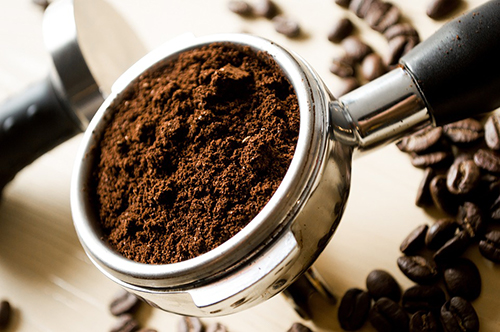 4. coffee grounds
4. coffee grounds
Sludgy drain blockages are never pleasant, and a common cause of blockages is coffee grounds. Although they may be small, and you may not think twice about washing your coffee grounds down the drain, these small grains can easily build-up, causing a sludge-like mess that slows water flow and obstructs efficiency.
 5. pasta pieces
5. pasta pieces
Stray pieces of pasta should always be thrown into the bin, rather than forced down the drain, as drain water can cause the pasta to swell and too much of it can potentially cause a rather smelly blockage.
6. potato peel
Even when thrown into a waste disposal unit, potato peelings can cause a sludgy mess. So, it’s no surprise that when washed down the drains, old potato peelings can stick together and slowly rot away in your pipes, causing blockages and unpleasant odours. So, even though it’s easier to do it, please avoid washing your potato peelings off your chopping board and straight down the sink. Scrape them in the bin instead.
 7. white or brown rice
7. white or brown rice
Rice swells when added to water – it’s one of the reasons you shouldn't feed dried rice to animals. However, you also shouldn’t feed rice to your drains as, just like pasta, the rice will swell in your drain and gather together to form a messy, sticky, and smelly blockage.
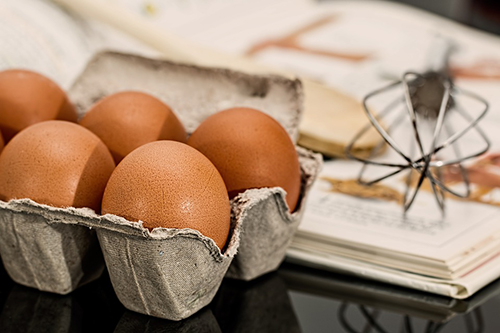 8. egg shells
8. egg shells
Egg shells are a fantastic addition to your garden or compost bin, but they should never be washed into your drains. Eggshells contribute significantly to blocked drains as their hard shells are so difficult to break down. To avoid blockages, throw your eggshells in the bin, compost, or onto the garden instead.
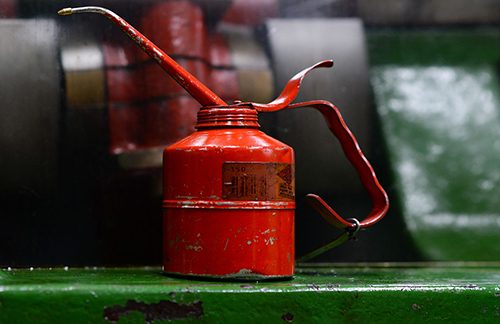 9. motor oil
9. motor oil
When it comes to the health of your drains, all oils should be avoided, and this includes motor oil. Why would you put motor oil down your drain, I hear you asking. Well, you may have been tinkering around with the car, only to come inside and wash the oil off your hands – it really is that easy! Instead of washing motor oil down your drain, wash your hands outside in a bucket of water or at the outdoor tap to avoid blocked drains and other problems.
10. food stickers
And stickers, in general, should be avoided at all costs. They may seem like a small problem in the scheme of things, but those small plastic stickers you get on bananas and other food items are renowned for sticking to the sides of drains and collecting on the filters of wastewater treatment plants. It’s a real problem and these stickers can cause significant issues with your drains, so try to remember to throw them away instead.
 11. condoms
11. condoms
Condoms will not disintegrate in water and will instead cause blockages in your pipes and potentially expensive-to-fix drainage issues. What’s more, condoms can make their way to the oceans and cause harm to animal and marine life (if mistaken for food). Therefore, it is best to dispose of these items in the rubbish.
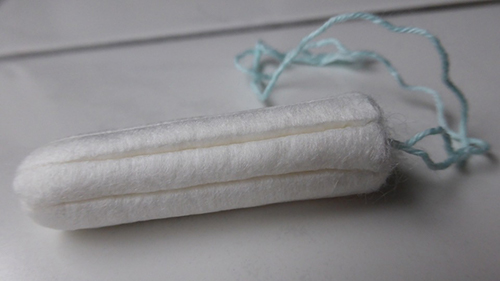 12. sanitary items
12. sanitary items
Unfortunately, this is an ever-growing problem and one that is causing significant strain on our plumbing and drainage systems. Made to absorb moisture, sanitary items have a tendency to expand and cause serious blockages in your plumbing system. Therefore, always ensure you provide sanitary disposal bins in public bathroom facilities and throw away your sanitary items while at home.
13. paper towels
Paper towels flushed into drains are one of the leading causes of blocked drains. While they are biodegradable, paper towels do absorb moisture and will clog your drain pipes if given the chance. What’s more, they aren’t very sustainable. So, to avoid the problem altogether, throw your used paper towels away or replace them all for good with washable cotton cloths and do your bit to protect the environment at home.
14. flushable wipes
I don’t care what the big brands say, wipes are not flushable. Even if they do easily flush down your toilet, they do not disintegrate like toilet paper and therefore contribute to the fatbergs and build-ups of giant clogs in our sewage systems. So, always throw away your used wipes. Flushing them can be even more detrimental than you know. In fact if it's not loo paper, pee or poo don't put it down your loo!
15. cotton balls or buds
Just like sanitary products, cotton balls absorb moisture and were not designed to be flushed down the toilet. These little balls of softness can become congealed when added to water, becoming a damaging substance in your drains. Always throw your used cotton balls or buds away to avoid blockages and slow draining water as a result.
16. cleaning solutions
Know how you disinfect your kitchen sink at the end of the day with an antibacterial spray? That solution is possibly harmful to the environment. Although it may not strictly cause blockages, it still should not be washed down the drain. In fact, cleaning products full of antibacterial agents, phosphates, and other compounds are harmful to the water’s ecosystems, so the importance of switching to organic products cannot be emphasised enough here.
 17. paint
17. paint
It doesn’t matter the colour of the paint, the type of solution, or what the paint is used for, paints should not be disposed of down the drain. These solutions are harmful to aquatic life and they can line the insides of your drains with harmful chemicals that may cause hazardous fumes to be released into your home.
18. medicines
Medicine should never be washed down the drain. It doesn’t matter whether it’s unused, expired, or you simply don’t want to take it anymore, medicines must be disposed of by professionals (such as pharmacies) with access to chemical or medical waste disposal units. Medicines being washed down the drain can be harmful to aquatic life and a risk to the environment. So, please avoid it at all costs.
19. fruit pits
These hard-as-concrete pits should never be put down the drain as they take years to break down and are more likely to block your drain than simply be washed away. Used fruit pits must be thrown in the bin. Even if you attempt to dispose of fruit pits in waste disposal units, you’re likely to be unsuccessful as even sharp blades cannot cut through these objects. A great place to get rid of fruit pits is on the compost, as they can break down over time and be reused on your garden later in the year.
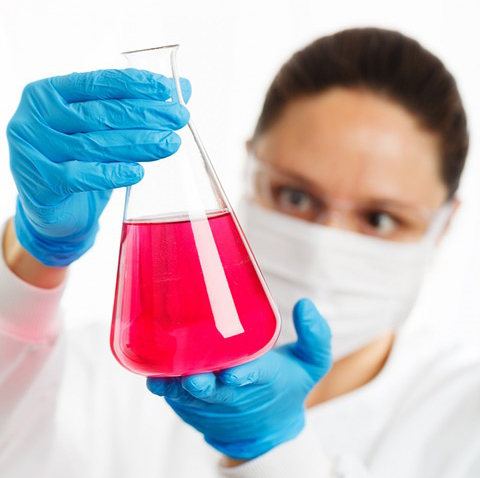 20. solvents
20. solvents
Solvents are in the same category as cleaning solutions, paints, and oils, as they fall under the toxic and harmful chemicals category. If you dispose of solvents down the drain, it is more than likely they will enter lakes and oceans and cause harm to vulnerable ecosystems in these environments. Always be wary of how you dispose of solvents, reading the label and throwing them away as directed.
21. orange and lemon rinds
Although these do smell fantastic and can be reused as natural deodorants around the home, disposing of orange and lemon rinds down the drain is a big no-no. Rinds are well-known for causing drain clogs and can be difficult to remove. So, find other ways to get rid of them such as composting, reusing, or throwing them into the rubbish.
22. flour
We all know what happens when flour mixes with water, it becomes an unmanageable and gloopy mess. So, why is it that we still feel it’s okay to wash flour down our drains? Flour coagulates and hardens inside drainage systems and can be a significant cause of blockages. When added with water, flour becomes a sticky mess that makes drainage especially difficult. So, always throw leftover flour into the rubbish bin and wipe your countertops with a dry cloth to avoid the frustration of wet flour stuck around your kitchen, as this can be extremely difficult to get off.
23. ‘flushable’ cat litter
Flushing cat litter down the drain presents two problems: the first is that cat faeces can cause disease and can be extremely dangerous to pregnant women. The second is that cat litter is not destroyed during the water treatment stage and is, therefore, a serious threat to marine species. In addition to all that, flushable cat litter can cause serious drain clogs and creates a big mess in your septic tank if you have a private sewage system. So, avoid it at all costs.
24. bones
Even if leftover bones from your evening meal make it down the drain, they will likely get stuck and cause a serious blockage. After all, bones are far too resilient to be broken down over time in your drain pipes and they can easily damage the internal plumbing system. So, always throw your bones into the rubbish and avoid the problem of blockages caused this way altogether.
25. garden supplies
Chemical garden products, such as pesticides, fungicides, and herbicides can pose a significant risk to marine life. What’s more, some of the chemicals may be damaging to the internal structure of your drainage system. So, to avoid any problems, dispose of your garden supplies as directed by the labels.
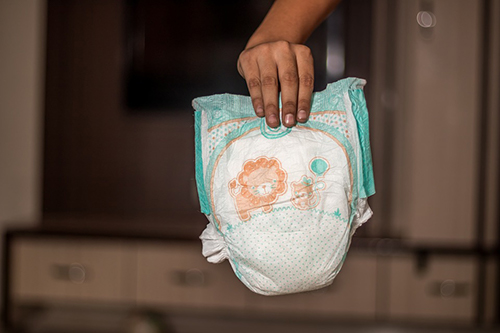 26. nappies
26. nappies
Nobody should look at a nappy and think, that looks like it could be flushed down the toilet. It’s just not doable. And just like sanitary products, nappies soak up moisture and expand, getting caught in your pipes in the meantime. While nappies are therefore generally too large to go down the drain, there are enough found in the sewers to suggest people are somehow managing to get them down the toilet!
27. dental floss
This may seem like a rather random object, but dental floss is a bathroom item commonly flushed down the toilet. This product can seriously clog your pipes and cause significant environmental damage. And the thing about floss is that it can even wrap itself around parts of your drainage system, causing further problems. So, always put used dental floss into the rubbish bin.
28. cigarette butts
Smokers around the country are washing their cigarette butts down the sink or flushing them down the toilet. This is extremely bad for drainage systems and a huge waste of water. What’s more, as you would expect, cigarette butts cause significant blockages in your drainage system.
 29. hair
29. hair
Hair is detrimental to your drainage system, which is why you should install drain guards in your shower to avoid blockages. However, people still flush hair down the toilet or wash it down the sink. This causes serious clogs, with the hair getting caught in basically everything and causing real problems within your drainage system. So, if you pick a handful of hair off the shower floor, throw it away instead of flushing it.
30. chewing gum
Chewing gum does not break down in the water. This sticky substance clings to the inside of your pipes and, as other materials attach to it, your pipes become clogged. Therefore, it is essential you throw used chewing gum away, rather than flushing it down the toilet or washing it down the sink.
31. dead fish
Have you got a pet fish? Well, I know it’s a little bit morbid but when your fish dies, it is not a good idea to flush it down the toilet. Although flushing fish is something most of our parents did with our dead pets, fish don’t break down in water and can clog the drains. So, to avoid a traumatic farewell, stick to a more traditional burial when the time comes.
32. contact lenses
There are around 125 million people using contact lenses worldwide and, as a result, billions of contact lenses go down the toilet every day. Unfortunately, contact lenses do not break down in water and therefore discarding used contact lenses down the drain can contribute to the creation of trillions of microplastics blockages – and these can end up back in our food! So, always get rid of old contact lenses by throwing them in the bin.
33. plasters
Although plasters are perfect for making those boo-boos better, they are made from non-biodegradable plastic and should never be flushed down the toilet. The place to put used plasters is in the rubbish bin.
34. flammable or explosive substances
This seems like a rather obvious point, but do not flush anything flammable or explosive down the drain as this can be a serious hazard. Instead, dispose of flammable and explosive substances correctly (as directed on the product’s label).
35. razor blades
Razor blades are another object that should not be washed down the drain as they can cause problems with the inside of your pipes. What’s more, razor blades pose a serious risk to aquatic life. So, always dispose of used razors carefully and not down the drain.
36. dairy products
Perhaps it’s an obvious point, or perhaps not, but dairy products should not be washed down the drain. Putting dairy products down the drain can have serious environmental consequences, so serious in fact that businesses can be fined for doing it. Quite simply, dairy products require large quantities of oxygen to break down and, therefore, when washed into your drains they travel to the oceans and deprive other organisms of the air they need to survive.
So, to avoid this, the next time you purchase a bottle of milk make sure you give yourself plenty of time to consume it – you’ll be doing the environment a huge favour.
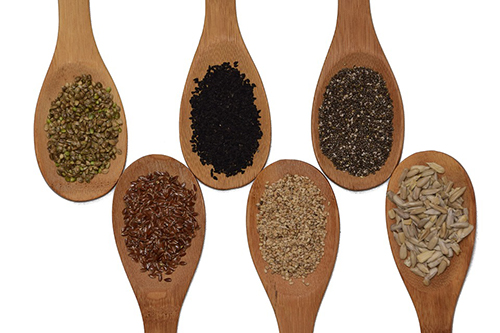 37. seeds and grains
37. seeds and grains
Speaking of food items in our drains, seeds and grains are another no, no. These little food items are a nightmare for your drain pipes to deal with and can obstruct proper water flow. So, avoid putting seeds and grains into your drainage system and instead throw them in the bin, add them to your compost, or feed them to the birds.
38. pumpkin
Many of us love to celebrate Halloween with a bit of pumpkin carving. However, while it is a fun activity, the clean-up afterwards can be pretty gruelling. All that stringy orange gunk you’re left with can be pretty difficult to clean up and if it’s difficult for you, just imagine how hard it is for your drains! Instead, put your leftover pumpkin pieces onto the compost or throw them in the garden for the squirrels (they love a bit of pumpkin) – it will save your drains a lot of hassle.
39. needles and sharps
These are items that should never, under any circumstances, be washed down the drain. Needles and sharps pose a significant risk to your drainage system and aquatic life. If you need to dispose of needles and sharps, always dispose of them correctly in a sharps box at a hospital.
40. plastic bags, wrappings, and cardboard
Plastic should never be flushed into your pipes as it is extremely harmful to the environment and can cause significant drain blockages. Any packaging, whether plastic bags, wrappings, or cardboard materials, should always be thrown into the rubbish or recycling bin so that they can be disposed of correctly.
41. rags
Old rags are so tempting for some people to simply flush down the toilet. However, rags easily block your pipes, so should be disposed of by being thrown away into the bin – do not flush them down the toilet.
42. fabric softener sheets
These fantastic little sheets are ideal for placing in with your washing and because they’re so small, it’s tempting to flush them instead of throwing them away. But, just like all the other products and objects we’ve mentioned in this article, fabric softener sheets are a risk to your drainage system. So, avoid blockages by throwing used fabric softener sheets in the bin.
 43. cosmetic products
43. cosmetic products
Makeup products are great for a night out on the town or glamming up for a wedding, but pouring old foundations or concealers down the sink is never a good idea. These products ruin the inside of your drainage systems and can cause a build-up of blockages over time. So, if you want to get rid of some old cosmetic products, throw them into the rubbish bin rather than washing them down the drain.
45. asparagus
Just like celery, asparagus is a very stringy vegetable and can cause problems with your drainage system by getting caught on other debris in your pipes. Asparagus should always be thrown onto the compost or into your rubbish bin, to avoid causing more blockages in your pipe system.
46. raw meat
When preparing dinner, it is possible dregs of raw meat may find themselves washed into your drain. While this cannot always be helped, try to avoid washing raw meat down into your drains. If raw meat is washed into your pipes and becomes stuck, it can fester and rot, causing very unpleasant odours to arise. So, always throw old meat away instead.
 47. carrot peeling
47. carrot peeling
Carrot peelings tend to be a risk for drainage systems, becoming caught in the pipes and trapping themselves around other debris. Carrot peelings are easy to get rid of, all you have to do is throw them on your compost or put them into the bin.
48. corrosive drain cleaners
There are some drain cleaners out there that claim to be ‘instant drain unblockers’. However, many of these products are extremely corrosive and can cause more damage to your system than actual help. Try to avoid extremely corrosive drain unblocking products as these can cause more trouble than they’re worth.
49. onion skins
Another food item that should not be washed down your drains, onion skins are normally forced through the plughole because people can’t be bothered to pick them out. Onion skins are very resilient and can cause physical barriers in your pipes that make it difficult for water to flow effectively. To avoid this, prioritise throwing onion skins in the rubbish bin or on your compost – this will be a huge benefit to your drainage system.
50. children’s toys
Hundreds, if not thousands, of children’s toys are thrown down toilets every year. All of these Lego blocks, car keys and barbie dolls have been building up in UK household systems and causing severe blockages. Encourage your children not to throw toys down the toilet as much as you can, as children’s toys are one of the leading causes of blocked drains in the UK.
There you have it, our list of 50 items you should never put down the drain!
If you take care of your drains, they will last for many more years to come and you will save a significant amount of money. We hope this list has been helpful. Is there anything you think we’ve missed? Let us know at info@asllimited.co.uk

